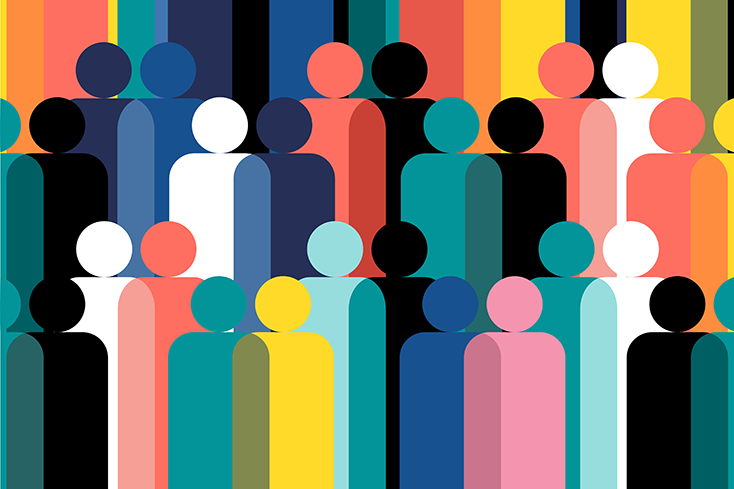
From the creation of the 911 system to the ways in which laws are enforced, policing in the U.S. is embedded in a long history of limiting Black communities’ mobility, self-determination and ability to redress and repair harm.
In Atlanta, like in many communities across the country, the development of Community First Response was a step toward reckoning with this painful truth.
For nearly a decade, I have worked alongside community organizers and servant leaders to develop a new approach to community safety and wellness in Atlanta as the Executive Director of the Policing Alternatives & Diversion Initiative (PAD). Following a two-year participatory planning effort, PAD has operated since 2017 to divert people from jail when police officers have detained them for activities related to unmet mental health needs, substance use or extreme poverty.
Embracing Policing Alternatives
In response to transformational, Black-led, local and national organizing efforts, in 2021 PAD expanded to enable community members to request non-police response directly through our city’s 3-1-1 line. Through partnership with the City of Atlanta Department of Customer Service, community members can call 3-1-1 to request in-person assistance for a range of concerns occurring in public spaces. These concerns include disturbances, public indecency and problematic substance use.
Ultimately, this kind of Community First Response directly improves safety and well-being by connecting people to appropriate care and resources.
Developing Community Infrastructure
However, simply changing the responder is not enough to change the current pattern. There is a long history of Black neighborhoods bearing the double burden of over-policing and under-investment in community resources that make places safe. This is a clear example of a “punitive paradigm,” in which marginalized community members are under-resourced, then subject to intervention intended to achieve compliance and control.
If we are truly going to move away from a punitive framework, then we must go beyond investing in Community First Response — we need to also invest in community resources. By developing and increasing public accommodations, like bathrooms and showers, recovery communities that connect people to peer support and safe, accessible housing options, we reduce the need for any intervention altogether. By investing in this critical social infrastructure, we ensure that when an intervention does occur, it is a bridge to community-based solutions.
Listening to Lived Experience
As community-first responders, we have a responsibility to articulate the fundamental values that guide our work, and how they are a departure from a status quo that has failed our communities. The perspectives of people with lived experience of mental health conditions, substance use, incarceration and involuntary confinement must be our guide. At PAD, respect for the self-determination of the people we are working with is the golden rule of Community First Response. We trust the wisdom of our partners at the Georgia Mental Health Consumer Network and many others in the peer recovery movement who describe this as choice and voice.
To that end, we define Community First Response as consent-based outreach that seeks to increase the well-being and safety of the individual served and the community at large in the immediate and long-term. Community First Response provides a pathway to resources and supportive connections without any coercion. This definition can cause frustration for residents and policymakers who have come to expect that disruptive community members be removed or compelled to comply with an authority as the definition of success.
Respecting Autonomy
While community-first responders routinely and effectively de-escalate intense situations, address immediate needs and improve the outcomes for all parties involved, they operate without the ability to or intention of controlling anyone’s bodily autonomy. And this is a fundamental, necessary departure from how we have all been socialized.
For those of us with loved ones who have experienced mental health conditions or substance use disorders, we may act out of fear, out of terror, out of exhaustion and frustration. We may want to control someone because we don’t want something worse to happen. When we see someone in crisis that we don’t know, we might have similar feelings, or simply feel uncomfortable.
We can hold empathy for this experience, as well as empathy for the experience of the person we are concerned about. But we can’t build new systems based on this fear. We will recreate harm if we do not respect bodily autonomy, including every person’s right to choose if and how to use medication or other treatment.
We set ourselves up to fail if we design new ways to respond to crises without addressing the lack of resources that contributes to the crises in the first place. We must release the logic of old systems to imagine the possibilities of a new paradigm of consent, abundant support and care.
Moki Macias is the Executive Director of the Atlanta-based Policing Alternatives & Diversion Initiative (PAD). She received a master’s degree in City and Regional Planning from the Georgia Institute of Technology and has spent the last 20 years engaged in criminal justice reform and community development. Originally from New Mexico, she is the proud mama to two small Atlantans and grateful for the queer community that makes Atlanta home.

